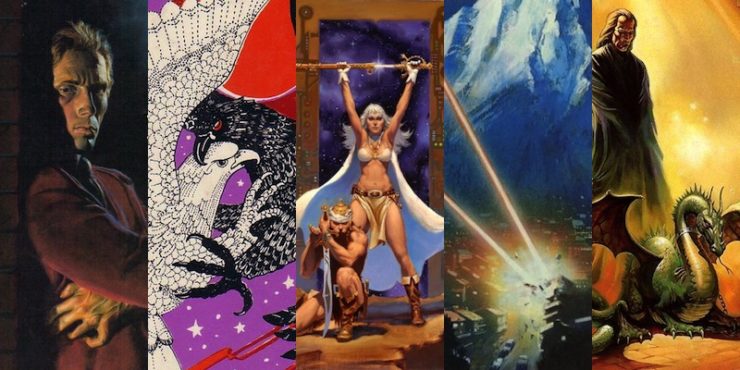You may have been annoyed by recurrent comments from a certain surprisingly flammable Waterloo-region reviewer. He complains about the erasure from SF memory of women writing SF back in the 1970s—but has that reviewer ever bother to name names? Suggest books? I think not. It is time to confront the erasure directly. Forward! Excelsior!
In an attempt to keep this list to a manageable length, I will focus on women authors who first published in the 1970s. That means skipping some significant authors who were already active at the time. I also reserve the right to cheat a bit by including a few works published after the 1970s. I am also going to break this list into several installments, beginning with A through F. Which should tell you just how many women have been erased. Whole binders full of women.
Lynn Abbey
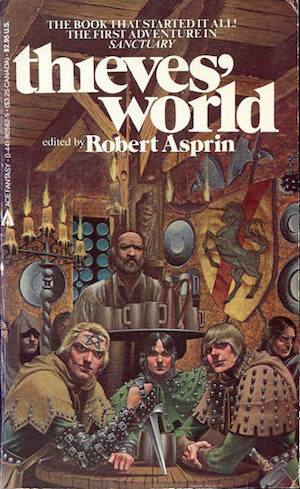
Probably the best place to begin with Abbey is “The Face of Chaos,” which is contained in the Robert Asprin-edited shared-world anthology Thieves World. Not only will that give you a feel for her fiction, it will expose you to a singularly readable sample of the Shared World universe.
Eleanor Arnason
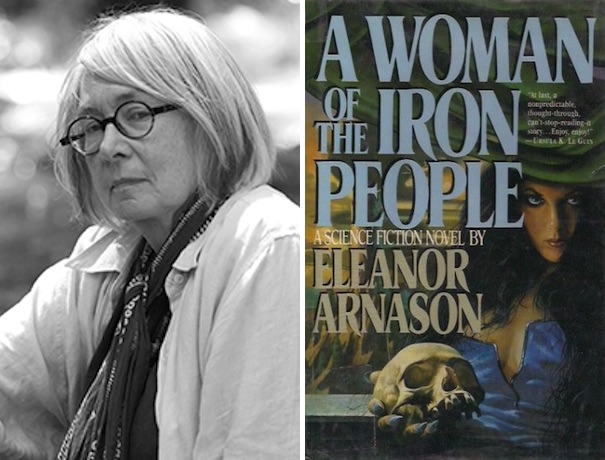
Arnason’s best-known work, for good reason, is her 1993 anthropological SF novel, A Woman of the Iron People. The book is a tale of First Contact between humans and the Iron People, who are physically humanoid but behaviorally more akin to elephants. A Woman of the Iron People shared the very first Tiptree Award with Gwyneth Jones’ The White Queen. I think Arnason’s novel is by far the better of the two books.
Octavia E. Butler
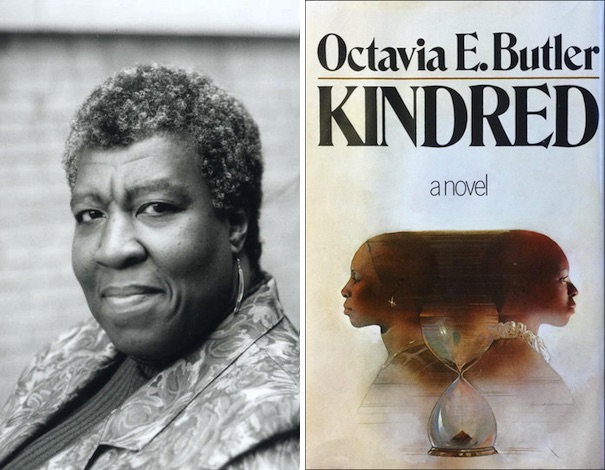
Where to begin with Butler? A couple of early missteps aside, her work was consistently strong. A standalone novel seems the best bet; while most of her books can function as standalones, many were also part of longer series. The most standalone-ish of them all is her classic novel Kindred, in which a modern African American woman finds herself transported back in time to the antebellum South.
Joy Chant
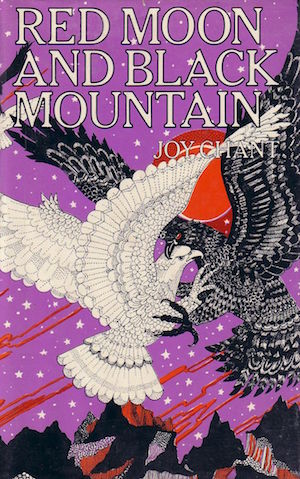
Chant’s first House of Kendreth novel, Red Moon and Black Mountain, is a secondary world fantasy novel. Three children from our world are transported to a fantasy realm akin to the worlds of Tolkien and Lewis. There they become embroiled in the battle against evil. Red Moon and Black Mountain won the 1972 Mythopoeic Fantasy Award.
Suzy McKee Charnas
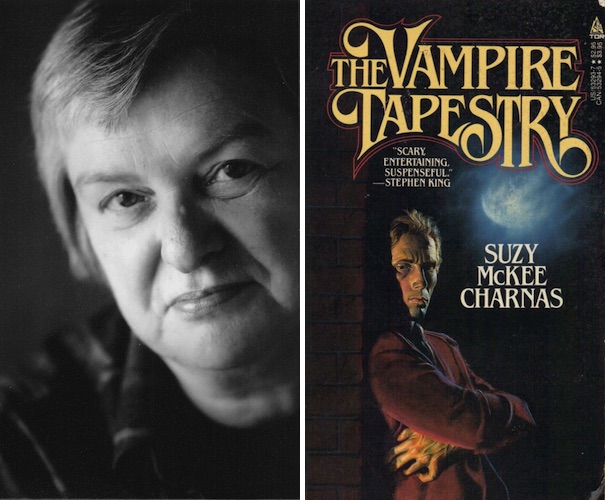
There are several excellent candidates for My First Charnas. First among them is The Vampire Tapestry. Charnas paints a compelling portrait of her solitary, cunning vampire living unnoticed amongst his prey. She does not romanticize the bloodsucker.
C.J. Cherryh
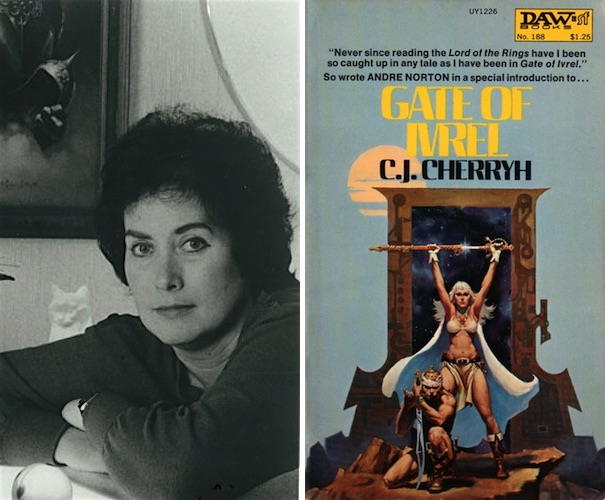
Cherryh is talented and prolific but not always accessible. For this reason, I’d suggest reading the first Morgaine novel, Gate of Ivrel, in which a headstrong young man finds himself serving as sidekick to a legendary woman struggling to preserve all space and time.
Jo Clayton
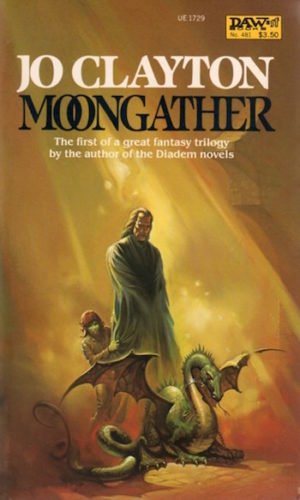
While I am fond of her Diadem novels, the Clayton I’d recommend as a starting point is Moongather, first in the Duel of Sorcery series. Moongather begins with a shocking act of betrayal, as seasoned warrior Serroi abandons her shield-mate Tayyan to a wizard. Told in two intertwined narratives, the novel eventually explains why green-skinned Serroi is so terrified of mages and what is at stake if she cannot overcome her fear.
Diane Duane
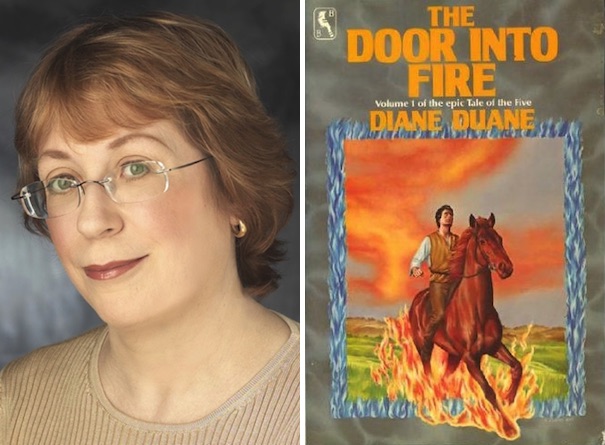
In Duane’s secondary world fantasy, The Door Into Fire, Herewiss struggles to master the Blue Flame in time to save his lover Prince Freelorn. Herewiss’ alliance with fire elemental Sunspark, a whimsical living WMD, may not prove entirely helpful. Modern readers might be surprised at how grimdark this is not, but readers back in the long long ago were more likely to notice Duane’s embrace of a range of sexualities.
Phyllis Eisenstein
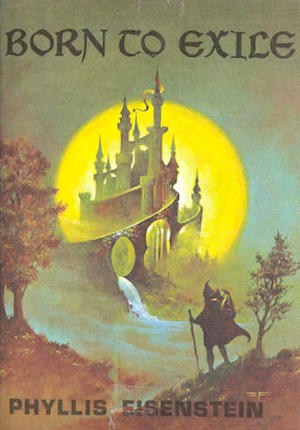 Eisenstein’s Born to Exile is the first of two published books about Alaric the Minstrel, whose ability to teleport would win him the starring role on top of a pyre if superstitious mundanes ever discovered what he can do. In this collection of short stories Alaric explores a considerable part of his world and discovers the origin of his curious knack.
Eisenstein’s Born to Exile is the first of two published books about Alaric the Minstrel, whose ability to teleport would win him the starring role on top of a pyre if superstitious mundanes ever discovered what he can do. In this collection of short stories Alaric explores a considerable part of his world and discovers the origin of his curious knack.
We live in a golden age of ebook reprints, but thus far Eisenstein has not benefited from it; however, you can find her story “The Caravan to Nowhere” in Rogues, the 2014 anthology edited by George R.R. Martin and Gardner Dozois.
Cynthia Felice
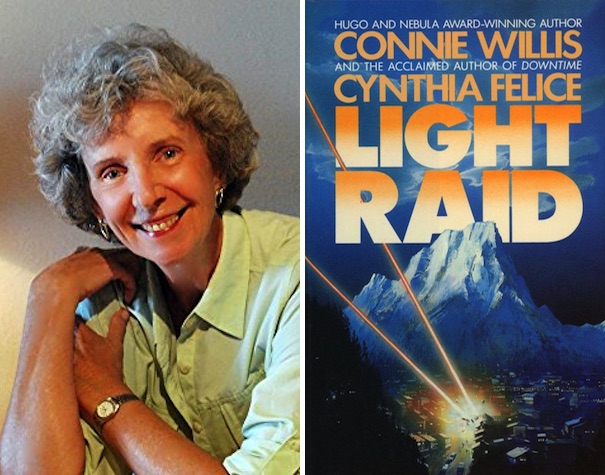
Here I run into the issue that I am not as widely read as I could be. The only Felice I’ve read is the coming-of-age thriller Light Raid, a collaboration with Connie Willis. Presumably American readers will be convinced by the novel’s depiction of evil, evil Quebec. Even though an Anglophone Canadian, I found this treatment hilariously misinformed.
She’s the author of seven books by her lonesome and three with Connie Willis—clearly a significant author but not one whose works I am informed about.
***
Sometimes my efforts to keep up with the field fall short. So it is with the following four authors:
If any of you have suggestions as to where I should begin with these authors, please leave them in comments.
In the words of Wikipedia editor TexasAndroid, prolific book reviewer and perennial Darwin Award nominee James Davis Nicoll is of “questionable notability.” His work has appeared in Publishers Weekly and Romantic Times as well as on his own websites, James Nicoll Reviews and Young People Read Old SFF (where he is assisted by editor Karen Lofstrom and web person Adrienne L. Travis). He is surprisingly flammable.










